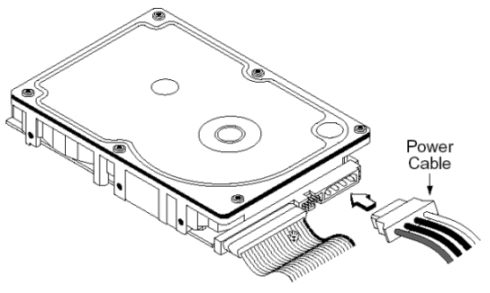Proper SCSI cable configuration depends on two things:
The ribbon cable should have either light red lettering or a red line running down the length of the cable. This red coloring indicates Pin 1 on the cable. Pin 1 on the hard drive is on the side of the ribbon cable connector closest to the 4-pin power connector. For proper installation, pin 1 on the cable must be aligned with pin 1 on the hard drive.

- Both ends of the cable must be terminated (host bus adapter at one end and last SCSI device or cable at other end). If you have an LVD SCSI cable, it may already have an integrated LVD terminator.
- Termination Power (TP) - Terminators require power from a source. The default configuration results in the drive not supplying termination power to the bus. You would normally leave the drive set at the default, unless your host system requires that the drive supply termination power to the bus. If the bus supplies termination power, the drive should be set to "receive termpower from SCSI bus."
- Intermediate SCSI devices must not be terminated.
How do I know if the jumpers are configured correctly?
The correct jumper settings are very important to a successful drive installation. Jumper settings for all Seagate hard drives are available in both graphical and text-only formats. Jumper configurations, installation guides, and product manuals can be located in the Seagate Document Library. Additionally, all new Seagate hard drives now have the jumper settings printed on the outer casing of the drive.







